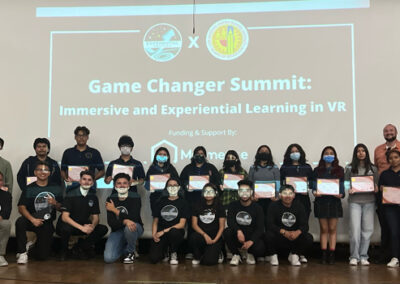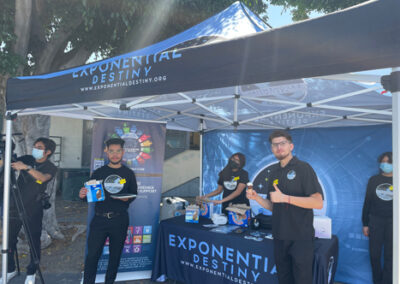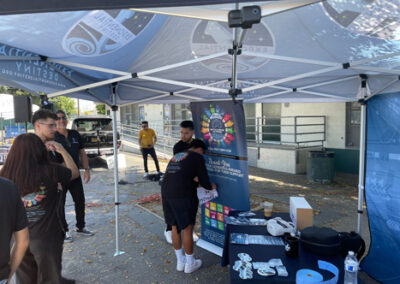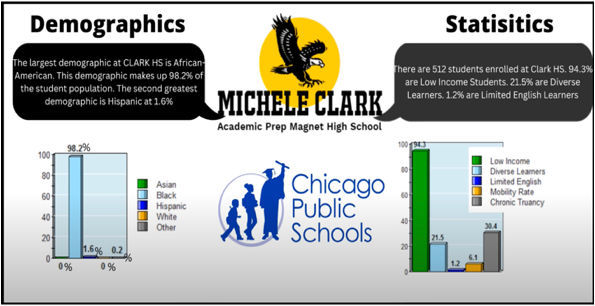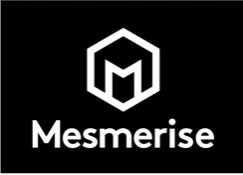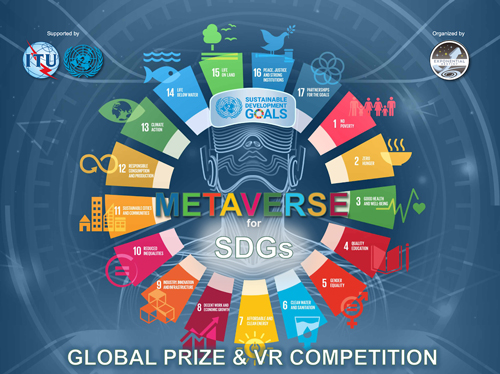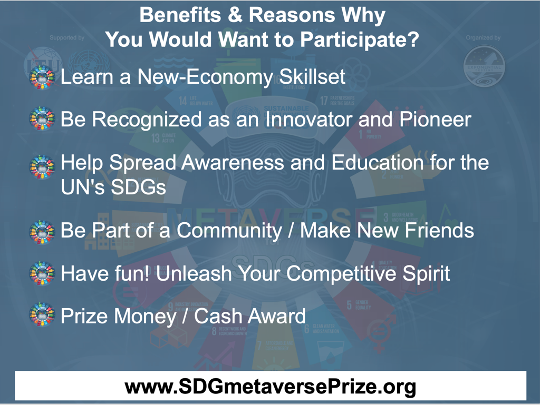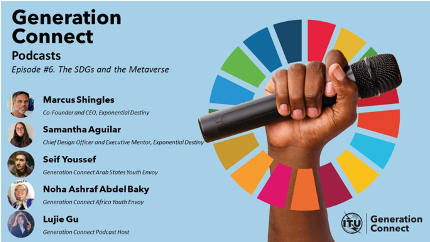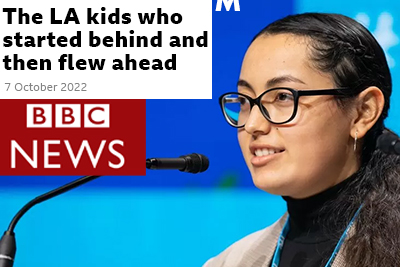Our projects & Approach
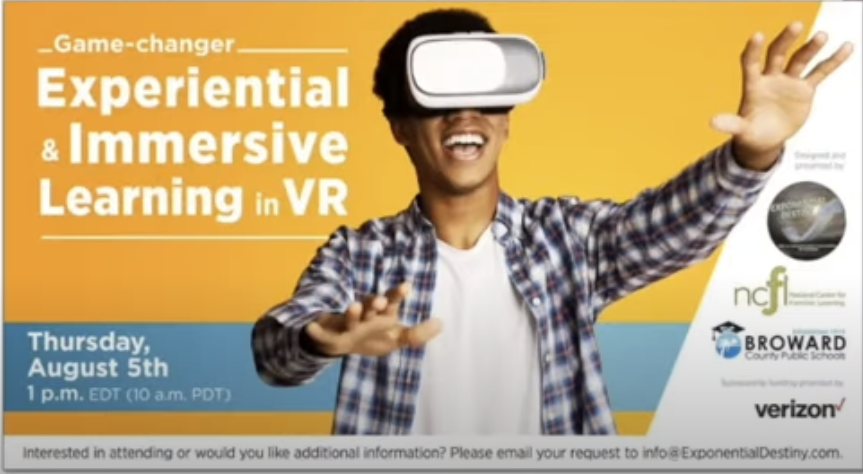
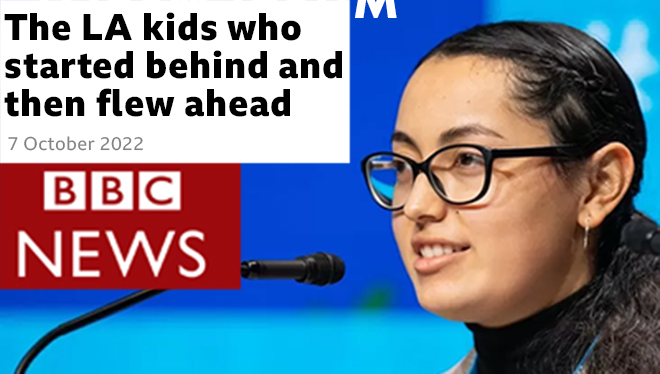
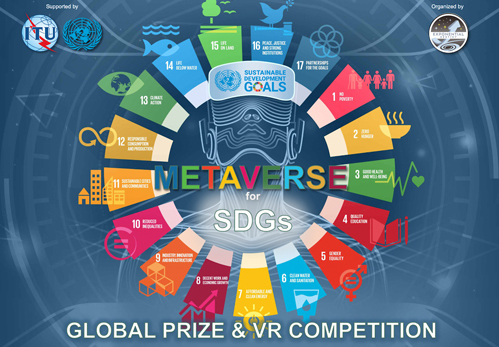
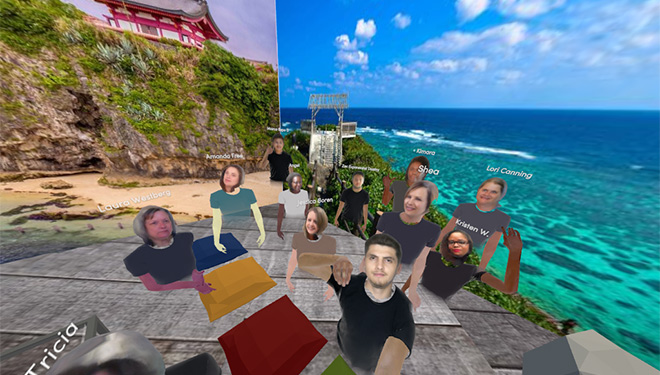
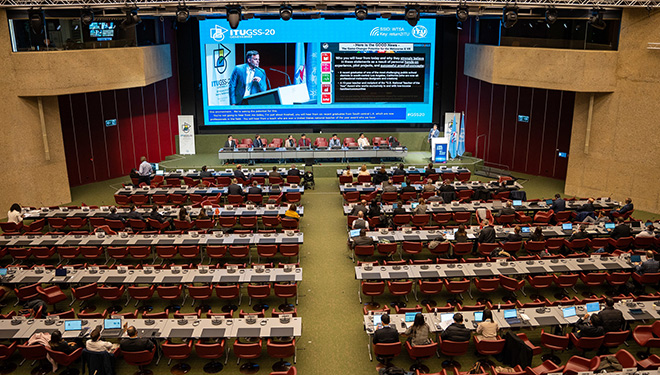
Reimagining Education
From the 6th largest public school district in the U.S. to high schools in south-central Los Angeles and west-side Chicago,…
We partner with public schools and other educational programs, primarily in under-resourced and marginalized communities, to teach students and teachers how to harness the power and potential of XR – and tools such as ChatGPT – to reimagine new pedagogies for education and learning.
Through an “innovation sprint” project-based approach, we train the teachers and students how to create their own educational assets and design new curriculum using immersive and experiential teaching methods that incorporate edu-tainment and gamification techniques.
Building Awareness & Empathy for Social Causes
We are partnered with the leading digital communications ITU agency from the United Nations to explore how to use XR experiences to bring education, awareness, and empathy to the UN’s 17 Sustainable Development Goals (SDGs).
From the United Nations SDGs to a world-renowned Museum focused on bringing cultural preservation to local communities…
We design and build virtual environments for these organizations – their own customized Metaverse – that help them tell stories to engage their stakeholders into life-like 360-degree and 3D immersive experiences.
Upskilling Youth In Low Income Communities
As featured in a 2022 BBC article, we are examples of youth from under-served public school systems who have been trained and upskilled into new-economy job relevancy
In addition, our goal is to place these individuals into compensated positions on our own projects we do for schools and social-impact organizations. The individuals we mentor and upskill are from the actual communities that that we work with, and this creates a highly effective peer-to-peer element to our projects; i.e., a student we upskilled who recently graduated from a low-income school is now working with us as a project lead at that same school to help them use XR to transform education and learning.
Reimagining Education
For these school projects we typically work with about 20 students, administrators, and teachers to conduct a pilot. We start by working with the teachers to identify a topic or subject matter that feel they have always struggled with getting students engaged, and thus students progress in learning that subject has suffered. Essentially, we are asking the school which subjects do they feel traditional methods and tools of education are not proving sufficient. Our objective is to then explore and experiment with these new tools we are introducing to see if better results may be obtained. Specifically, we want to explore with the students and teachers how virtual reality may be applied using immersive and experiential methods for learning. We then work with the students, teachers, and administrators over a multi-month project to test different educational pedagogies using VR, while incorporating “edu-tainment” and gamification techniques. The Exponential Destiny team trains the students and teachers on how to design and create in VR (a non-technical skillset), so that they become the developers of their own solutions and are ultimately self-sufficient.
Our Approach
If you are an educational organization – public school, after school program, adult learning center, summer camp – we would like to partner with you to experiment with new tools and methods using VR to dramatically improve education and learning:

OUR RESEARCH PROJECTS & CASE-STUDIES
Educational programs and institutions we’ve worked with to explore integrating immersive & experiential methods using XR into their curriculum
Building Awareness Around Art & Culture
In November we completed our first workshop at the historic Thomas Jefferson High School (link) in south-central LA. The students were highly engaged and inspired! In preparation for the workshop, and as a selection criteria for participating, each student completed a paper where they described a role model in their own lives, which was shared and discussed before immersing into the Human Atlas VR experiences. Our objective was also to introduce students to VR/Metaverse design and development, and how this emerging technology may be used in various industries and careers.
To conclude, students completed a survey about the workshop to assist us with our research to understand how to optimize immersive and experiential methods of learning using VR, and furthermore, how it may be applied as an educational tool for teachers and students, particularly in underserved/under-resourced schools. We donate to each school enough new VR headsets so that the students can start a “VR Learning Lab” or club to help teachers explore how to incorporate this new tool into their course curriculum.
From November 2023 to January 2024 we did similar workshops at many schools throughout Los Angeles, reaching over 1,000 students in total.
Working with museums and other cultural institutions to do educational community outreach
Building Awareness & Empathy for Social Causes
Recent independent efficacy studies show that individual learners who experience content in virtual reality are “3.75 times more emotionally connected to content than classroom leaners”, and have a “275% improved confidence level to act on issues” (see full report). Therefore, we feel there is a real opportunity to assist organizations to draw awareness, empathy, and education to their mission and causes in a fun and engaging way using VR incorporated with the art of story-telling and gamification.
For example, we are working with one of the leading agencies of the United Nations to engage their stakeholder community around their “UN Goals”, or the 17 SDGs of the United Nations.
Our Approach
If you are an organization with a societal impact mission that you would like to “bring it to life” in a customized immersive experience in virtual reality, we would like to partner with you to tell your story. Your own customized Metaverse!
Working in VR we have an abundance of “super-powers” that we may leverage to take your target audience and key stakeholders through an edu-tainment based experience, that helps them connect emotionally to your mission and cause, while illustrating the work and impact your organization is making.
We realize that budgets are tight in most social cause-based NGOs and non-profit organizations that we partner with, and thus we work with you to create these VR experiences using high quality/low cost digital assets (i.e., software, hardware, platforms, 3d images, etc.)

OUR RESEARCH PROJECTS & CASE-STUDIES
Organizations We Have Worked With to Build Empathy, Awareness & Education to Their Causes:
A special thank you to our sponsors who have funded the prize purse and operations costs (+15% of purse) for the “Metaverse for SDGs Global Prize & VR Competition”

Supported by

$75,000 Purse

$30,000 Purse
+$15,000 ITU Summit Sponsor

$30,000 Purse

$30,000 Purse

$30,000 Purse

$10,000 Purse

Collaboration Partner
Upskilling Youth In Low Income Communities
Meet Samantha, or ”Sam”. Sam is part of the core leadership team at Exponential Destiny. Like many of her colleagues, Sam grew up in a lower-income community in south-central Los Angeles. She recently graduated from College as an Art major. In her role at Exponential Destiny Sam mentors individuals, her peers, on how to become a “Metaverse” entrepreneur. She is a perfect mentor because she shares her own story about how she was upskilled to be a creative designer in VR, and how she is able to now make an income for herself with this new competency.
Our Approach
At Exponential Destiny many of our founding team members and youth-leaders in our organization are graduates from low-income public schools and communities (e.g., south central Los Angeles). We personally observed and experienced the new job market and economic opportunities that were emerging for those of us that were being trained and upskilled on how to be a designer and creator of VR experiences. Almost immediately after our our training to obtain these new digital skills, we were getting placed into professionally paid projects to help organizations identify and develop use-cases for leveraging VR in their own organizations.

Once we personally realized this potential (i.e., for non-technical youth and adult learners to be upskilled into relevancy for this new emerging digital “Metaverse” economy, resulting in job and income opportunities) we made it part of our mission to act as mentors to help upskill our peers who also are from lower-income communities, so they could be relevant and potentially find similar opportunities.
We implement our youth and adult-learner mentorship model as part of every project we do. For example, when we engage with a school to help them reimagine education (learn more), or work with a social-impact organization to develop their personalized metaverse to build empathy, education, and awareness to their cause (learn more), we integrate into those deliverables our upskilling and mentorship objective. Ultimately our goal is to even find income-making opportunities for the youth we mentor by placing them onto our own projects once their skill have been fully developed through our mentorship and training programs.
Here are some more example of our mentees sharing their experiences and new opportunities that emerged once they were upskilled into this new competency at Metaverse entrepreneurs:
Research Results
Click here to see what we’ve learned from these projects and what our research shows today.
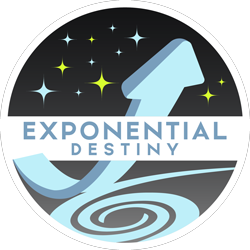
Follow Us
Follow Us



